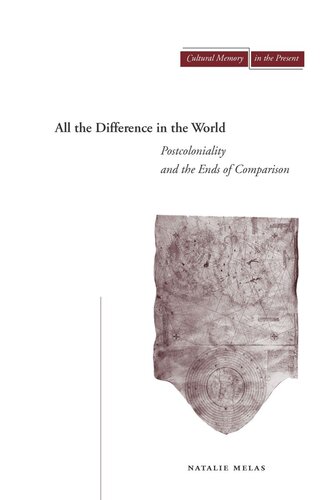

Most ebook files are in PDF format, so you can easily read them using various software such as Foxit Reader or directly on the Google Chrome browser.
Some ebook files are released by publishers in other formats such as .awz, .mobi, .epub, .fb2, etc. You may need to install specific software to read these formats on mobile/PC, such as Calibre.
Please read the tutorial at this link: https://ebookbell.com/faq
We offer FREE conversion to the popular formats you request; however, this may take some time. Therefore, right after payment, please email us, and we will try to provide the service as quickly as possible.
For some exceptional file formats or broken links (if any), please refrain from opening any disputes. Instead, email us first, and we will try to assist within a maximum of 6 hours.
EbookBell Team

4.3
18 reviewsThis book is about culture and comparison. Starting with the history of the discipline of comparative literature and its forgotten relation to the positivist comparative method, it inquires into the idea of comparison in a postcolonial world. Comparison was Eurocentric by exclusion when it applied only to European literature, and Eurocentric by discrimination when it adapted evolutionary models to place European literature at the forefront of human development. This book argues that inclusiveness is not a sufficient response to postcolonial and multiculturalist challenges because it leaves the basis of equivalence unquestioned. The point is not simply to bring more objects under comparison, but rather to examine the process of comparison. The book offers a new approach to the either/or of relativism and universalism, in which comparison is either impossible or assimilatory, by focusing instead on various forms of “incommensurability”—comparisons in which there is a ground for comparison but no basis for equivalence. Each chapter develops a particular form of such cultural comparison from readings of important novelists (Joseph Conrad, Simone Schwartz-Bart), poets (Aimé Césaire, Derek Walcott), and theorists (Edouard Glissant, Jean-Luc Nancy).